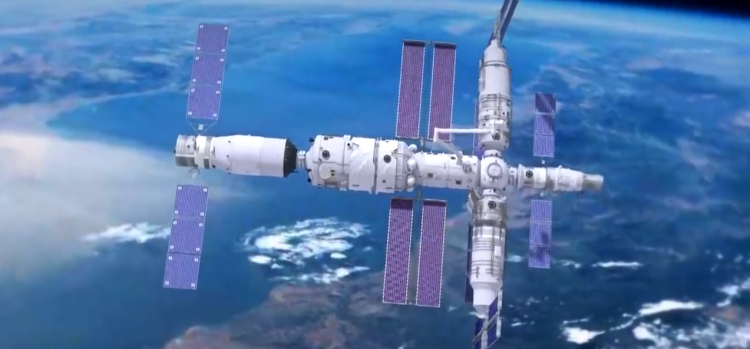A new module has been added to China's Tiangong space station. At 3:15 PM EDT (1913 GMT) on Sunday, July 24, the new module successfully docked with the Tianhe section of the crewed Tiangong space station. According to a statement from China's space agency.
"The entire rendezvous and docking process lasted about 13 hours," the China National Space Administration wrote, based on a translation provided by Google.
The rendezvous and docking were "completed normally," according to translated comments from three Shenzhou 14 taikonauts, who have been in space since June 5.
According to the regular flight control plan, follow-up work will be carried out, commander Chen Dong stated in the broadcast. According to statements made by Zou Xuemei, chief engineer of the Wentian lab module mission, and translated by CCTV, Chinese flight control, the docking procedure went without a hitch.
On a huge Long March 5B rocket, the Wentian module was launched earlier on Sunday in order to connect with Tianhe. At 2:25 a.m., Blastoff happened. EDT (0625 GMT or 2:25 p.m. Beijing time).
The 187-foot (57-meter) rocket's first stage will reach Earth's atmosphere in an uncontrolled manner, as it has in prior launches of this kind. International space debris monitors are keeping track of the rocket's trajectory.
The previously one-module space station now has more residential space and a science module in one with Wentian. Tiangong can accommodate up to six crew members temporarily during handovers because of its experiment cabinets and astronaut sleeping chambers. It is equipped with an airlock for use during spacewalks as well as a small robotic arm.
Wentian is anticipated to be relocated to a lateral or side port after docking using the robotic arm of the module, which has a length of 33 feet (10 meters), but China has not yet provided an estimated time for that maneuver.
Together, both Tianhe and Wentian are orbiting the Earth at a distance of 381 kilometers (236 miles), which is a little lower than the orbit of the International Space Station. In order to send further experiments into orbit, China intends to launch another module dubbed Mengtian in October.
According to the agency, NASA is not permitted to "engage in any bilateral activities with China or Chinese-owned companies" because China is an independent actor in space. Additionally, the Biden administration has recently condemned China's space efforts on a number of occasions.






